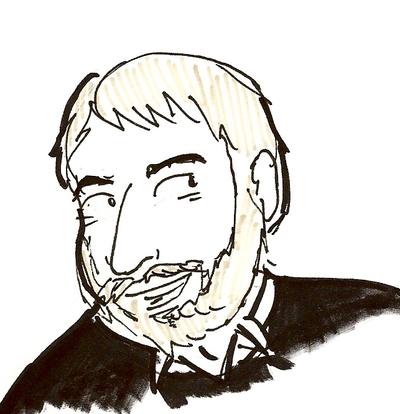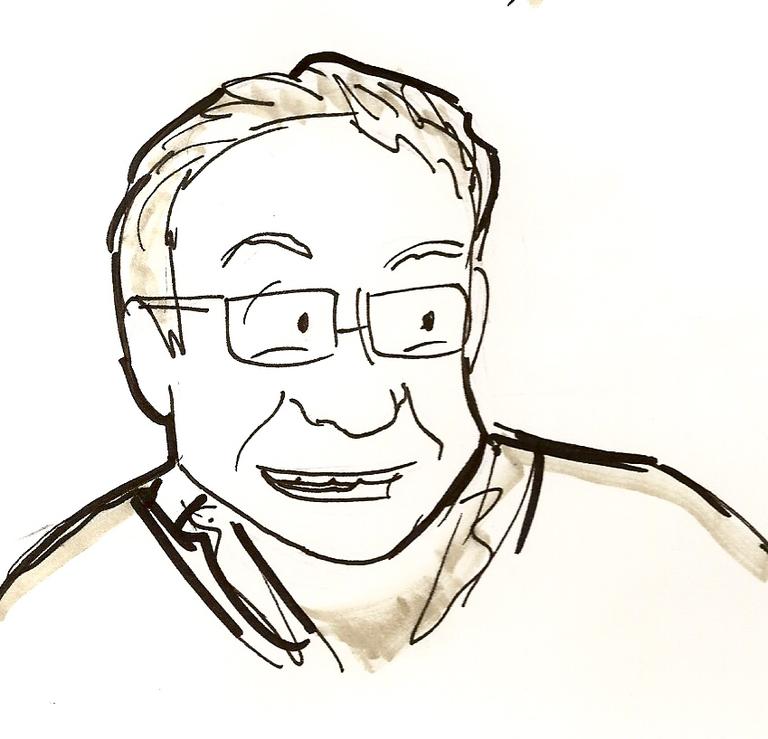Advertisement
Payne & Domke: Cahill Is Fading Out After Poor TV Ad
ResumeIs the race for governor of Massachusetts at risk of becoming a two-man contest?
Democrat-turned-independent Timothy Cahill has been the target of negative ads from the Republican Governors Association (RGA), and he has fallen off in recent polling, further behind incumbent Gov. Deval Patrick and Republican Charles Baker.
Now, Cahill is out with new radio and television ads to jump-start his campaign. But can Cahill make up the ground he has lost? WBUR’s political analysts — Republican Todd Domke and Democrat Dan Payne — try to answer that question.

Todd Domke (R): After collapsing in the polls, Cahill is trying to make a comeback with his new TV spot. But it looks like more thought was put into his decision to go on the air than went into creating the spot itself. He needed a great ad, but it’s mediocre. He doesn’t have a message that voters will talk about or remember. He mainly reminds voters of the negative ads that ran against him.
He is trying to emulate Sen. Scott Brown without really understanding what worked. Yes, Brown did a TV spot responding to negative ads against him — just talking to the camera, dismissing the ads. But unlike Brown, Cahill didn’t first run ads that established his credibility, his persona, his connection with regular people. Instead, in his introductory ad he complains that he has been unfairly criticized. Voters, suffering in this economy, are not in a mood to feel sorry for politicians.
We have to wonder why Cahill waited so long to respond to the RGA ads. Was it because he couldn’t refute what was said about him, because he did indeed support cronyism and over-spending? Was it because he thought voters would quickly forget the ads, so he should wait and spend his money later when voters were more tuned in to the race? It was probably a combination of reasons, but it added up to wishful thinking and political miscalculation. He did not respond quickly with ads of his own, and he did not respond convincingly in media interviews or on talk shows, so he collapsed in the polls — down to single digits in one. He was getting to the point in which the media had to ask: why are we giving him better treatment than we give fourth-party candidate Jill Stein, of the Green-Rainbow Party? So Cahill had no choice but to spend some of his $3 million that he had been saving to salvage his credibility as a serious contender.
His ad may seem early in the political calendar — with 120 days until the election — but as an ad meant to introduce him, it’s actually late in the game. As an independent, he should already have established in the public mind what his candidacy is about — why he’s running, what he wants to accomplish, who he is personally, why he should be trusted, etc. Instead, he runs a reactive spot about the negative ads that ran against him a month ago.
In the spot, Cahill is wearing a blue shirt — summer casual, just as Baker in his own TV spot wore an athletic shirt. They’re trying to emulate Brown, who wore a barn jacket during his winter campaigning. The idea is to not look like an incumbent, to not look like a suit. At this rate, we shouldn’t be surprised if Patrick does a TV spot wearing a bathrobe.
Populism is appealing when there’s so much voter anger, but being a populist doesn’t just mean looking like a man of the people. How are you challenging the establishment? How would you try to solve problems in a two-party system? Cahill’s TV spots don’t even begin to answer those questions.
When Cahill campaigned for treasurer, he had a simple slogan: "Tim for Treasurer." It was a contest of name recognition. But for governor, as an independent, there is no simple message or simple strategy.
Cahill is trying to go to the right of Baker on some social issues, since Baker said that he’s to the left of President Obama on social issues like gay marriage. And Cahill is trying to emulate Brown in sounding like a populist. But it doesn’t seem authentic. He’ll go on Glenn Beck's show and sound conservative in criticizing Romney Care and ObamaCare, but why was he silent before this campaign? He hasn’t yet given us reason to believe that he really changed from being an Old School pol to a Tea Party rebel.
There’s one powerful politician who wants Cahill to continue as a viable candidate: Patrick. Patrick knows if Cahill is at 20 percent or higher in the polls, then he just needs to keep his 40 percent liberal Democratic base to win reelection. If Cahill’s support collapses and it becomes a two-candidate choice, then the majority that disapproves of Patrick’s job performance will probably swing behind Baker.
So I imagine Patrick will say he will only debate if Cahill is included. He doesn’t want to face Baker one-on-one, with Baker saying, “If you’re happy with the status quo, vote for Deval, but if you want change, vote for me.” So I think we’ll see three-candidate debates. And maybe Baker will insist that Stein, who cuts into Deval’s liberal base, also be included in debates. That would be chivalrous. Chivalry might be one of those social issues where he’ll be to the right of Obama.

Dan Payne (D): The RGA TV spots against Cahill ran two months ago. It might seem like just yesterday to Cahill but very few people remember the specifics, except the ads did damage his claim as a fiscal conservative.
(By the way, he’s wrong that the first ad of the race was attacking him. Actually, the first ad was his own. It ran during the Super Bowl and was so ordinary, apparently even Cahill forgot about it.)
He’s on TV because he can’t afford to keep sliding in published polls. He’s at 9 percent and falling. In baseball, if your batting average goes below .200, you're said to be below the Mendoza Line. Cahill is falling below the Christy Mihos Line — less than 10 percent of the vote, which is what Mihos got four years ago running as an independent.
When you fall way off the pace, money dries up. You lose endorsements. People stay away from events in droves. The press is less likely to cover you. Then, your poll numbers fall. That’s where Cahill is right now.
Strategically, Cahill's ad is off — he’s obsessed with being an independent. But he’s not explaining what his independent-ness is worth to the voter. It’s a case of "telling me about your grass seed rather than my lawn."
In baseball, if your batting average goes below .200, you’re said to be below the Mendoza Line. Cahill is falling below the Christy Mihos Line — less than 10 percent of the vote.
Dan Payne (D)
He’s been treasurer for seven years and before that a Quincy city councilor and county treasurer — he’s been in government continuously since 1987. It’s hard to run as an anti-government independent when you’ve been a politician for almost 3/4 of your adult life.
In his TV spot, he’s doing a bad imitation of Brown — his delivery makes him look whiny and defensive. And, why should we believe him? He offers no proof — candidates use newspaper headlines or excerpts from a report to corroborate a claim. But he gave us no corroboration.
His timing is exquisitely bad. He started advertising the week before the Fourth of July, when TV viewership is way down. He’s going to have to spend millions to get back into the race. And he only has $3 million. One week of TV in Boston alone costs about $300,000, so he’s got enough for 10 weeks — trouble is, there were 18 weeks left in the campaign when he started.
Meanwhile, Baker has closed the gap and is now only six or seven points behind Patrick. We have a long way to go, so a lot can and will change. Patrick wants it to be a three-way race because it divides up the non-Patrick vote. Baker wants a two-way so he can be the only electable alternative to Patrick. And Cahill wants a one-man race, with just him in it. That's the only way he can win.
He needs to do something daring. I think he should declare himself a Tea Party candidate. He’s their kind of candidate — against all government, for something they vaguely call freedom — which seems to mean having the freedom to have a civilized society but paying nothing to support it.
The Boston Globe poll showed only 25 percent of Massachusetts voters said they support the Tea Party movement. That’s not a majority but it's a lot more than the 9 percent Cahill has right now.
Cahill will get into all the debates. He’s the sitting treasurer and he’s still got a decent-sized political bank account. But cash on hand is going to become a big problem for Cahill. His recent report showed he raised just over $63,000 for June and spent more than nine times that, or $576,332. Cahill’s not worried about not being in debates. He’s worried about going broke.
He's said in at least two TV interviews that he's in the race to the end. After the Brown miracle, he may hang around and hope lightning strikes and doesn't kill him.

